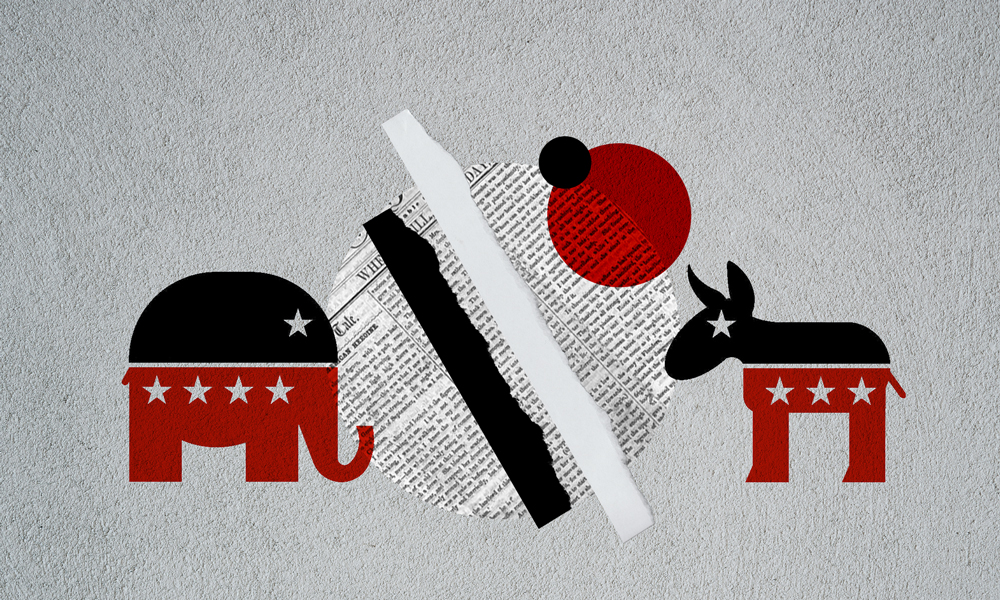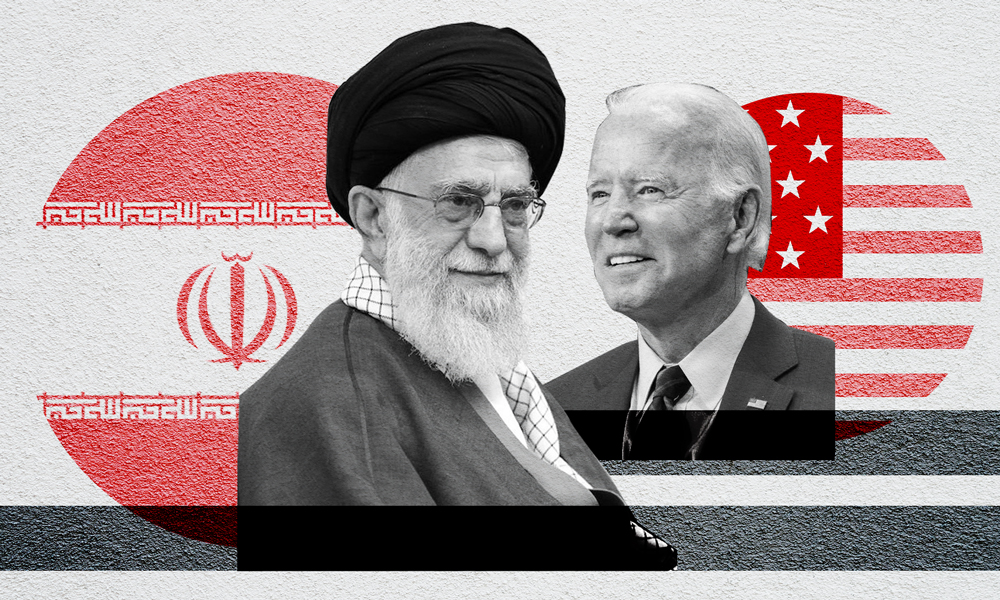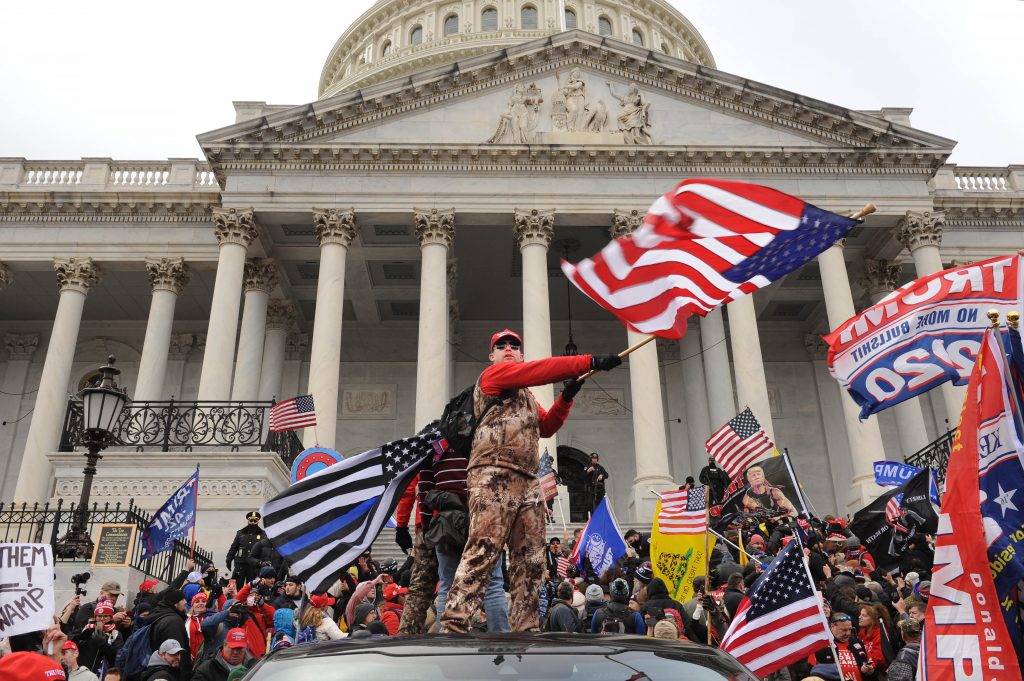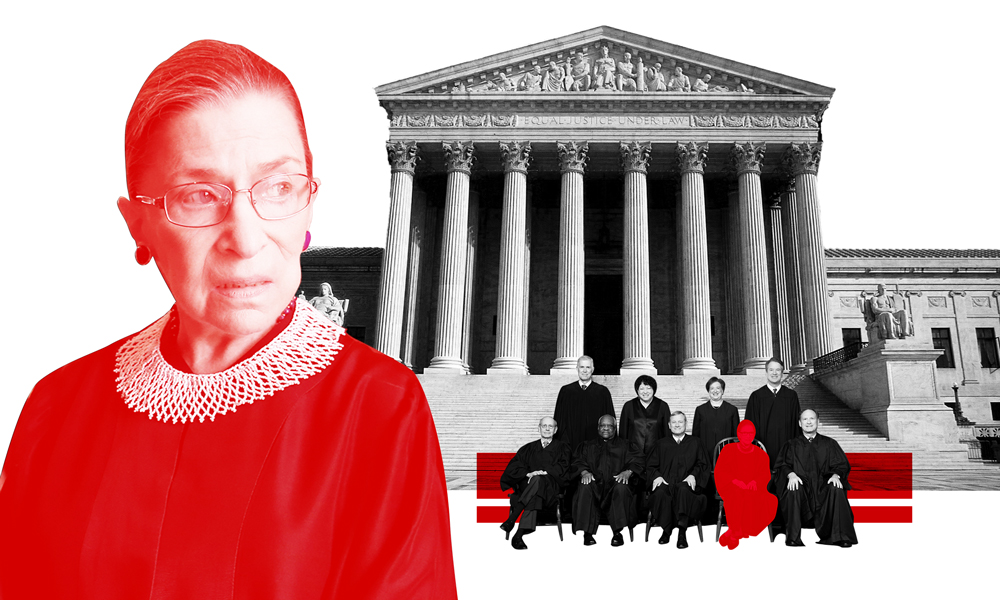
1. One last dig into the 2020 Jewish vote
Two weeks have passed since election day, and there’s nothing anyone wants more than to put this whole thing behind us. But before we do so, we need to settle the least important question of these elections, yet the one most likely to come up during your (virtual) Thanksgiving, Passover or whatever family dinner table: How did the Jews vote?
As everyone probably knows, this (again, unimportant) question is far from being settled.
Ask Democrats, and they’ll point to a J Street exit poll which found that the Jewish vote went 77:21 percent in favor of Biden—an increase compared to Hillary Clinton’s results among Jewish voters in 2016.
Ask Republicans, and you’ll get a different answer. Their poll found that Trump increased his share of Jewish voters to 30.5 percent, while 60.6 percent voted for Biden.
It’s a pretty big gap, but not one that surprises experts. We’re not only talking about a tiny slice of the population, which is hard to measure in these types of polls, but also one that is not precisely defined (who is Jewish? Those practicing Judaism? Americans with Jewish heritage? Cultural Jews? All of the above and more?).
For most, the difference is meaningless because the bottom line remains the same: American Jews vote by a large margin for Democratic candidates and did so this time.
The difference is important mainly for those who make their living from persuading Jewish voters to support one side or the other. And if you’re one of that small cohort, every percentage point counts. After all, these activists and advisers need to go back to their donors after election day and explain how they delivered better than expected.
But are there any scenarios in which tiny shifts in Jewish voting trendlines make a difference in real-life politics?
Sure.
It matters in cases where these shifts can impact future elections. Florida stands out as a key example. According to The New York Times’ poll, 43 percent of the state’s Jewish voters supported Trump. That’s way above the national average and is significant given Florida’s status as an uber-swing state. Or in the case of ultra-Orthodox Jewish voters, who, according to anecdotal evidence, went overwhelmingly for Trump. This won’t matter much for the electoral count since they’re mostly concentrated in blue states, but it could mean that Dems can stop directing resources toward winning over voters they have no chance of getting.
In Haaretz, Chemi Shalev offered an analysis showing that the Jewish vote in critical states swung the election for Biden. This analysis looks at how Biden won tens of thousands more Jewish votes than Trump in Pennsylvania, Georgia and Arizona, thus presumably giving him the edge in these states. While mathematically right, it’s worth keeping in mind that these Jewish voters favored Clinton in 2016 and weren’t enough to win these states back then, so it could be equally right that while the Jewish vote remained steady, it was other population subsets that made the difference.
Is there a bottom line?
Yes. For all practical purposes, the Jewish vote is by and large the same as it was in the past–mostly Democratic, which is pretty remarkable given the strong push by Democrats to paint Trump as a danger to Jews in America and the equally aggressive effort by Republicans to portray Biden as a danger to Jews in Israel.
2. Are Jewish Democrats and Republicans more divided than ever?
It was a heated election season for Jewish politics.
Accusations hurled by each side were harsher than in previous election cycles, especially when related to endorsing or accepting anti-Semitism and white nationalism.
The tone was also different.
In the past, the battle between Jewish Democrats and Republicans seemed like friendly banter between old time rivals at the shul kiddush table. Now, perhaps as a reflection of the overall angry tone that has defined the past four years, Jews on both sides seem to have taken the gloves off. This shift was apparent in testy Twitter exchanges between the campaigns, as well as in the outpouring of anger, and at times hate, toward the candidate from the rival party, in events and gatherings hosted by the staunch margins on both sides: progressive Democrats, ultra-Orthodox Trumpists and Israeli-American Republicans.
3. But this doesn’t mean Jews can’t unite behind Biden’s agenda
President-elect Biden, for better or worse, is a moderate. And as such, it shouldn’t be that difficult to get most Jewish voters, including many of those who voted against him, to agree on most of his policy proposals:
Coronavirus: Biden’s decision to make this a priority should resonate well with the entire Jewish community. Except for the small faction of Heshy Tischler followers in Borough Park, COVID deniers never made inroads among Jewish Americans, even those in the pro-Trump circles who took issue with limitations imposed by New York’s Democratic governor and NYC’s mayor.
Immigration: limiting immigration of all kinds–one of Trump’s hallmark policies–has never been an issue Jewish Republicans feel strongly about. Rolling back these restrictions is something they can easily support.
Taxes: This is more of an issue for old-time Jewish GOP supporters than for other pro-Trump Jews. It won’t be easy for Biden to garner support on this issue from Jews who voted for his rival.
Israel: This should have been the big dividing issue, but in reality, the differences aren’t huge.
For most, Biden’s policies will suit most mainstream Democratic and Republican Jews: robust foreign aid for Israel, support for a two-state solution, opposition to Iran obtaining nuclear weapons. Biden can’t expect progressive Democrats to back him when he refuses to pressure Israel into concessions, just as he will not have the support of Republican Jews when he criticizes the Netanyahu government settlement policy. But that’s about it.
And Iran? Here it’s more about reality than policy. Biden would like to return to the nuclear deal (a move Jewish Republicans and some Democrats oppose). Still, since Iran has shifted away from the agreement following Trump’s withdrawal, there’s no easy path back to the agreement. A newly negotiated deal could probably win over many Jewish skeptics since it would be a bit stricter than the previous deal and would likely get more support from Israel.
4. Adelson losing faith
An editorial last week in the Sheldon Adelson-owned Las Vegas Review-Journal got a lot of attention. The content wasn’t earth-shattering, but reading in a paper owned by Trump’s single largest donor that “Mr. Trump lost this election because he ultimately didn’t attract enough votes and failed to win a handful of swing states that broke his way in 2016,” is noteworthy.
In plain words, it means that Trump’s top backer, who poured more money into the Republican race than any other donor, had enough with Trumps’ refusal to concede. Sheldon Adelson and his wife Miriam weren’t early Trump fans, but they grew a liking to his policy on Israel and his success in getting Republicans elected.
What happens next?
The Adelsons may have given up on Trump, but not on the Republican Party. Expect them to play a pivotal role in supporting presidential and congressional candidates and backing a GOP policy on Israel that is in line with that of Trump: questioning the two-state solution, supporting settlements, shifting focus from the Palestinians to Gulf countries.
5. A Jewish revolving door?
Where do administration figures go when the pond freezes over?
No need to worry; they all find jobs. That’s what corporate boards and think tanks are for.
For Ivanka Trump and Jared Kushner, the future entails going back to their business operations, though it is still unclear if they’ll do so from New York (where they may face some unwelcome faces), or move with Donald to Florida.
Steve Mnuchin? He, too will probably go back to the business world.
Stephen Miller? That will be a more challenging fit, but the Breitbart/OANN/Newsmax ever-expanding ecosystem could be a good match.
And then there’s David Friedman, Trump’s ambassador to Israel; does he stay on to live in the Holy Land? If he moves back, look for him to be the most sought-after speaker, board member, or even leader of any right-wing Jewish organizations.













